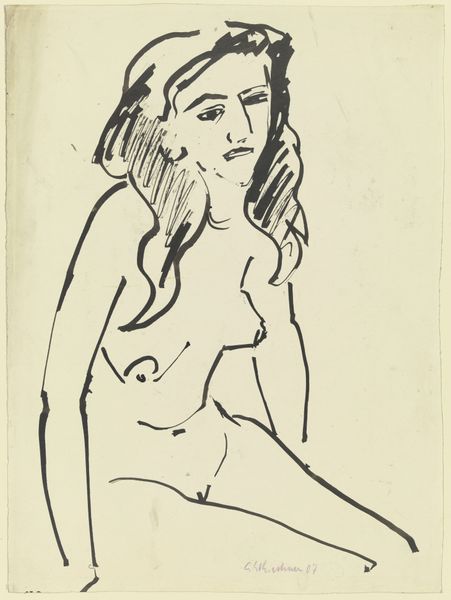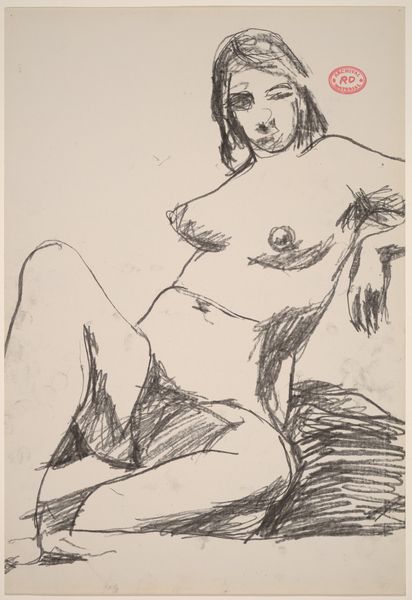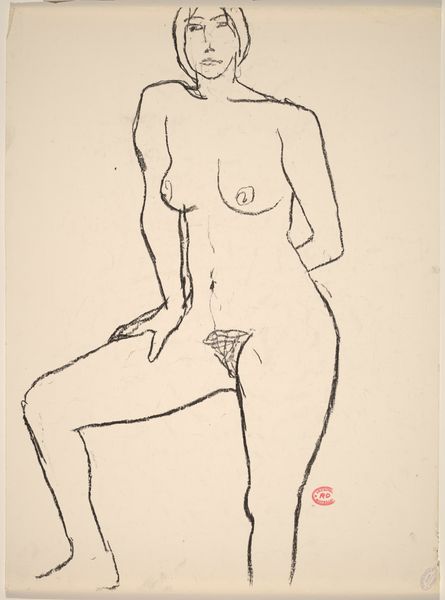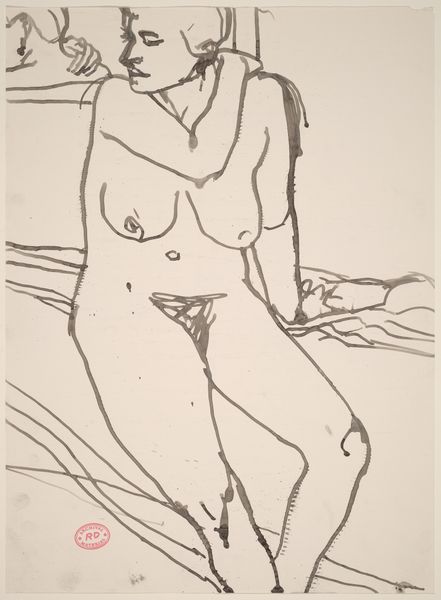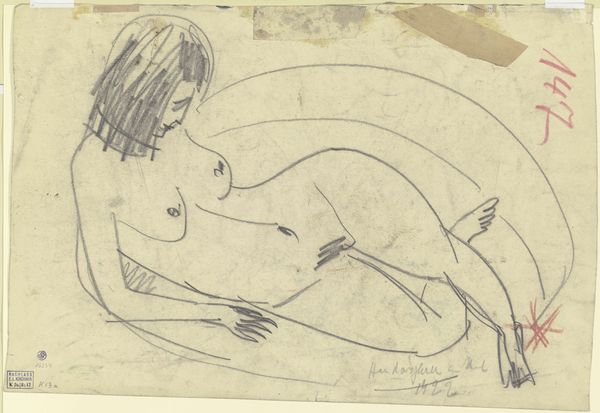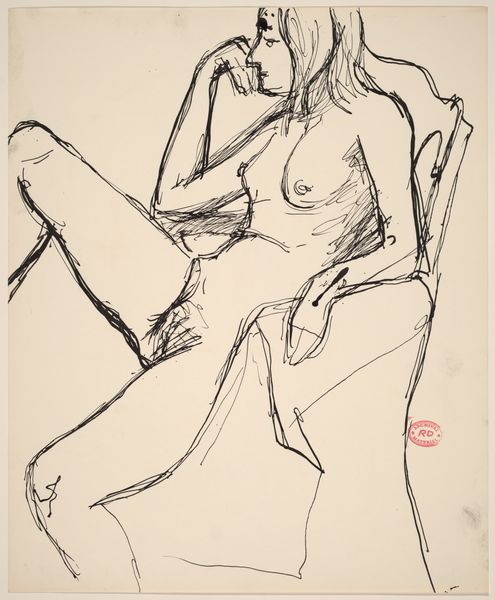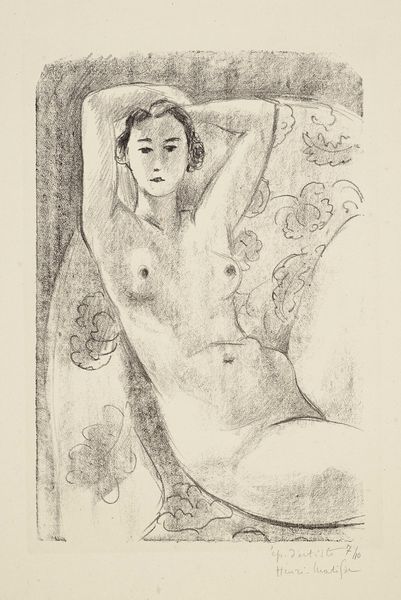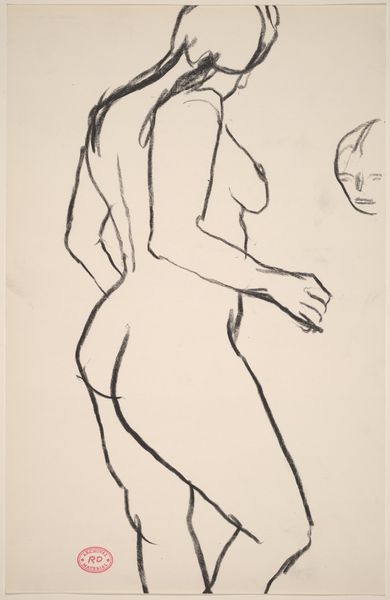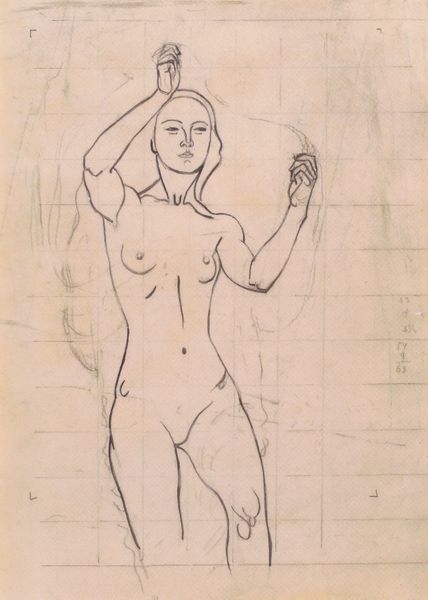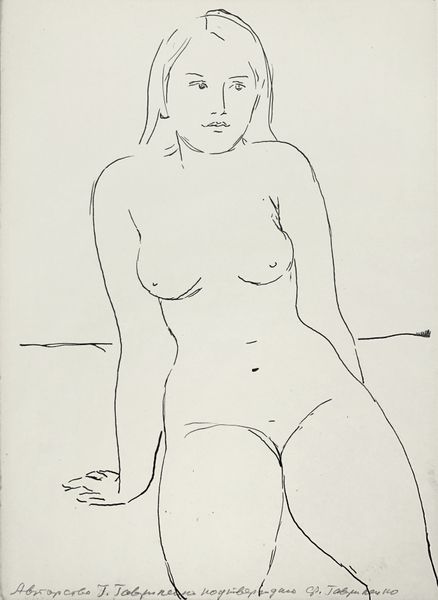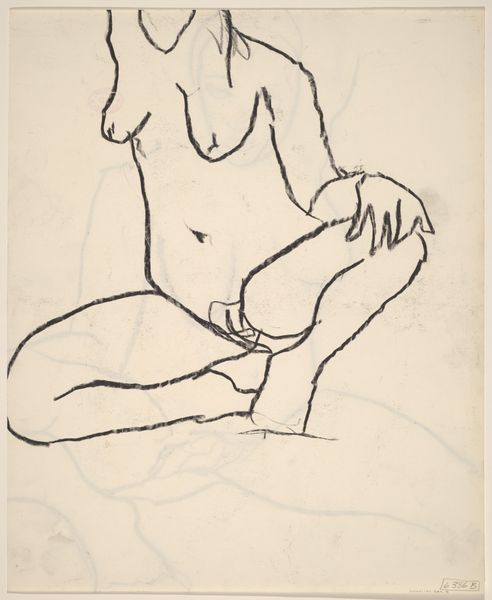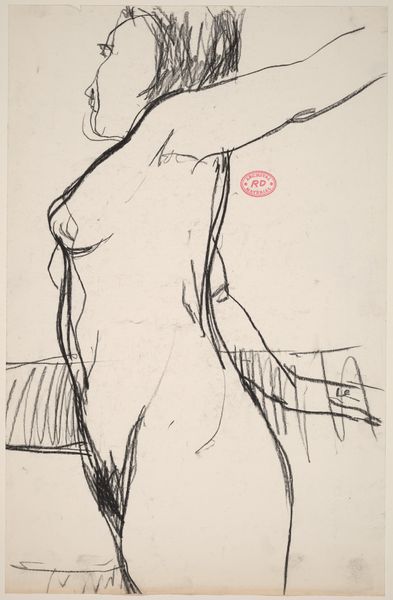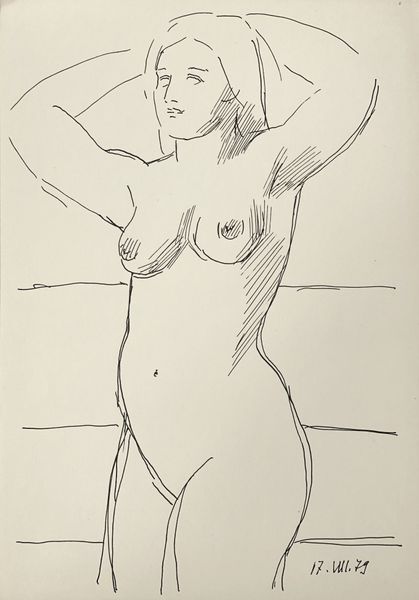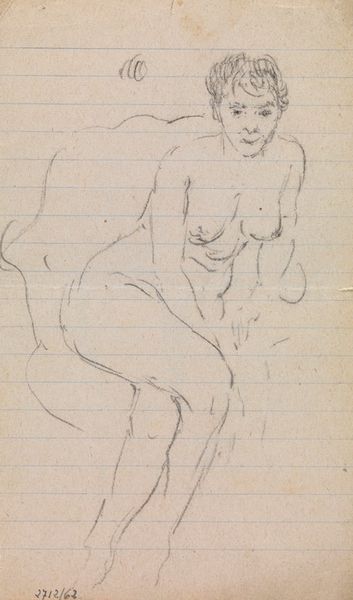
print, etching
#
portrait
# print
#
etching
#
nude
#
modernism
Dimensions: plate: 14.5 x 11.6 cm (5 11/16 x 4 9/16 in.) sheet: 22.8 x 19.8 cm (9 x 7 13/16 in.)
Copyright: National Gallery of Art: CC0 1.0
Curator: This is "Echo," an etching by Walt Kuhn, created around 1920. It’s a nude portrait rendered in stark, linear strokes. Editor: Immediately, I'm struck by the figure's languid pose and the almost melancholy air she exudes. The monochrome amplifies that feeling of introspection, wouldn't you say? Curator: I think that mood you describe resonates with Kuhn's engagement with modernism. This print speaks to early twentieth-century themes of alienation and interiority, yet it's firmly rooted in classical artistic tradition given its subject. This print, though, existed and was viewed within a specific art market… print collecting and its place within domestic and art historical narratives. Editor: Right. So, you have this classical subject--a nude figure-- presented in a distinctly modern style. I mean, the loose lines and lack of idealization certainly sets it apart from academic nudes, don’t they? The asymmetry is kind of wonderful actually; the contrast between her outlined skin and almost tangled dark hair gives the piece an unbalanced visual harmony. It reflects the name too; "Echo," with that double sound, a contrast between skin and hair. Curator: I appreciate your thinking on the formal aspects mirroring the name, Editor. Also consider how the etching process itself lends a kind of "echoing" quality. Think about it: the artist draws an image, transfers it to a plate, etches it, and then prints copies. The final print is thus always removed--a trace, if you will--from the original impulse. And these multiple reproductions meant his work had an appeal, accessibility even, that painting alone could not offer. Editor: Hmm, and the intimate scale, as a print. This is the art of being looked at and considered… unlike the kind of grandiose historical painting on view around the time this work was made. Kuhn invites quiet contemplation. I sense both strength and vulnerability… It really speaks to our current moment actually, that push-pull of exposure and self-reflection, even a sense of disappearing. Curator: Yes, the act of viewing—and reproducing, or echoing as it were—becomes a deeply political act! Well, this piece certainly left a resounding impression. Editor: Indeed, an "echo" that continues to vibrate in our minds.
Comments
No comments
Be the first to comment and join the conversation on the ultimate creative platform.
